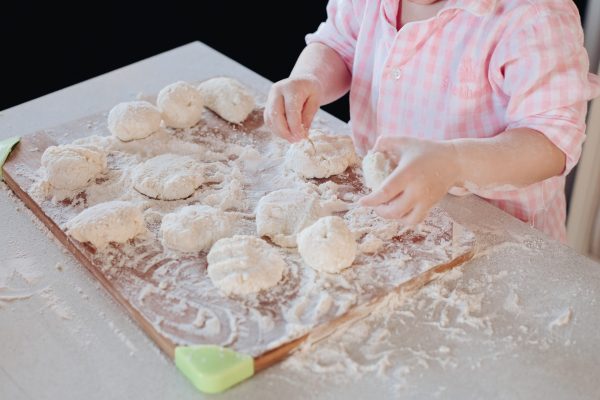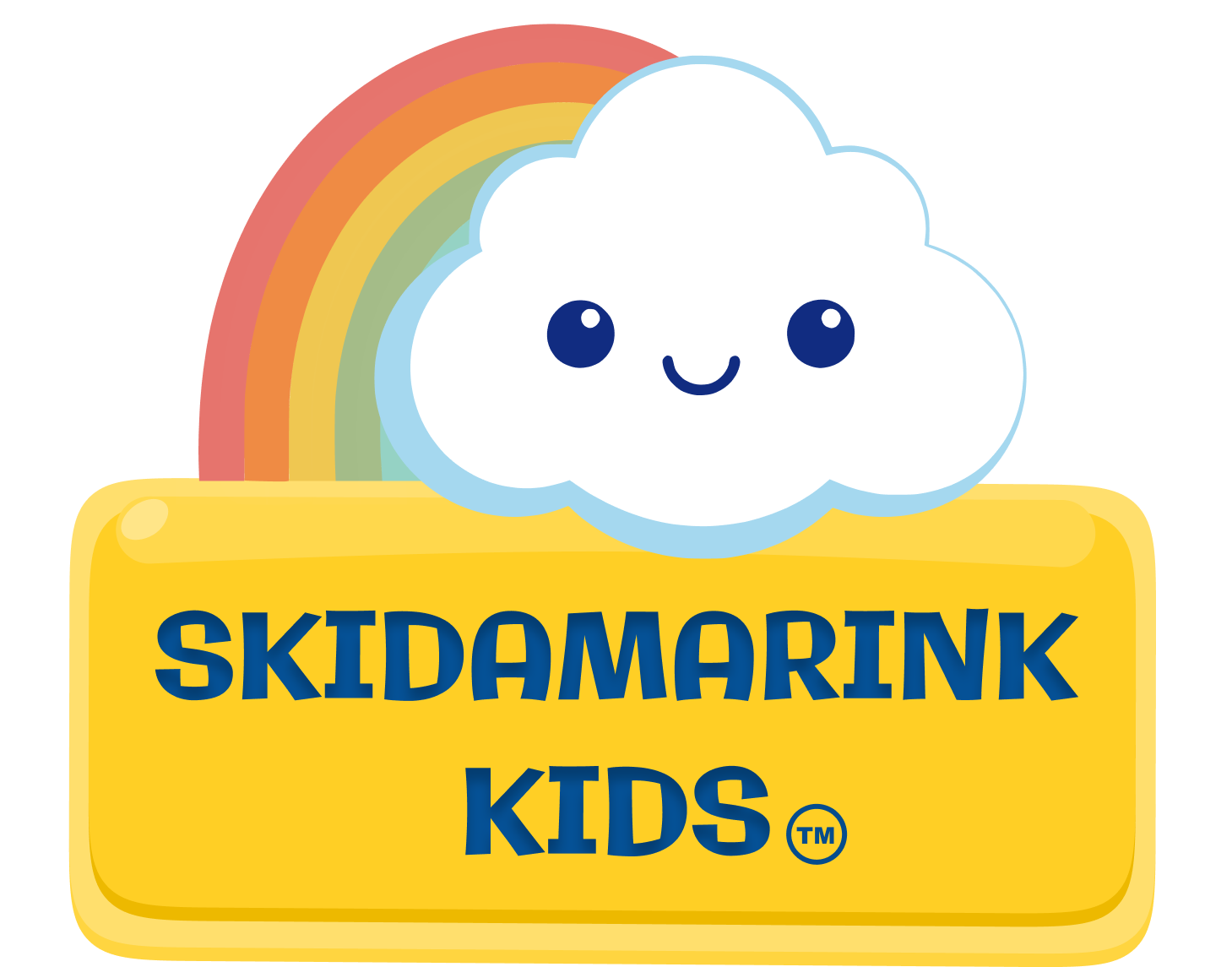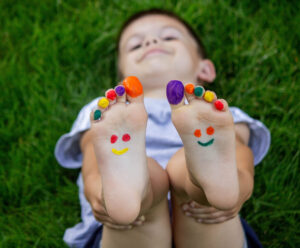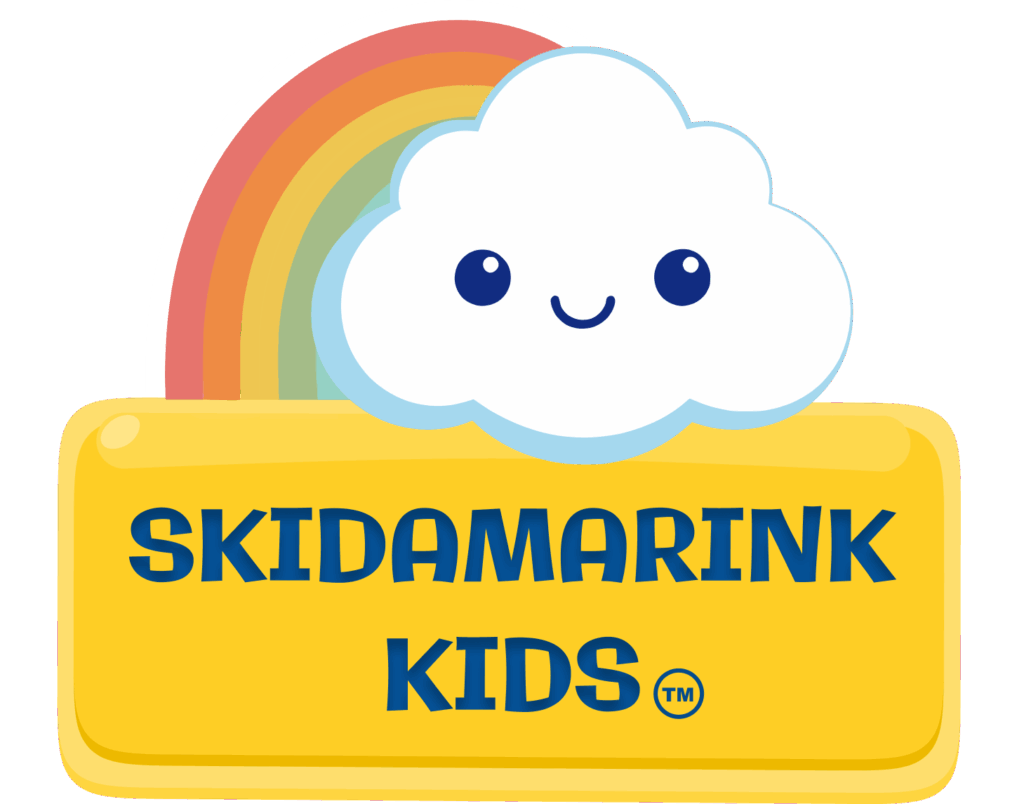Strengthening your child’s impulse control doesn’t require special equipment or dedicated “learning time.” Everyday self regulation activities can be naturally integrated into your family routines. This makes developing these skills both effective and convenient.
Self regulation is the ability to manage emotions, control impulses, and adjust behavior to different situations. It’s a foundational skill that affects almost every aspect of a child’s development. When children develop strong self control abilities, they’re better able to wait their turn, think before acting, follow directions, and handle disappointment
Let’s be honest. It’s so easy to hand your child your phone during daily activities. We all know it’s hard to get everything done in one day. Sometimes there’s no way around that, and that’s okay!
However, when you take time to connect with your child during these everyday moments, you’re doing something powerful. You’re helping them develop critical self regulation skills. These skills will help them manage their behaviors as they grow. They’ll be more likely to help with daily tasks as they get older. You’re not just getting through the day. You’re investing in your child’s future.
Why Everyday Self Regulation Activities Matter
The connection between self regulation and impulse control is important. As I discussed in my previous blog, Child Self Regulation: The Brain Balance Key to Success, self regulation acts as the brain’s “air traffic control system.” It helps children pause, consider consequences, and make better choices instead of acting on impulse.
When children struggle with impulse control, they may have difficulty making friends, following classroom rules, or managing frustration. By embedding practice opportunities in everyday moments, you’re helping your child strengthen the neural pathways that support these critical skills.
The Power of Daily Practice
These daily opportunities to practice self regulation occur naturally and frequently. This makes them perfect for consistent skill building. By recognizing these moments, you can transform ordinary routines into powerful learning experiences. You don’t need to add extra tasks to your busy schedule.
Why This Matters for Daily Activities
When both sides of the brain work together smoothly, your child can handle life’s challenges with confidence. They can be excited about new experiences (gas pedal) while still maintaining self control (brake pedal). However, everyday self regulation activities help strengthen both sides of the brain, especially that crucial “brake pedal” that helps with impulse control.
Everyday Self Regulation Activities Through Daily Interactions
Self control skills can be developed during routine moments throughout your day.
Daily Activities
Pair self regulation activities with daily tasks. These simple additions make a big difference:
- Imitate animal sounds during diaper changes and encourage them to do the same
- Encourage working memory skills, asking them to show you where toys need to be put up
- Sing songs with gesture or encourage them to back up a story while waiting in line
- Engage older kids in planning activities
- Guide them to break down tasks into smaller, less overwhelming pieces
- Model self control and explain your choices (like why you didn’t eat the last cookie even when you wanted to)
- Take a deep breath and calmly respond to others
Grocery Shopping Adventures
Turn your shopping trip into learning opportunities with these everyday self regulation activities:
- Play “I Spy” with colors and shapes
- Practice counting fruits or sorting vegetables
- Work on waiting patiently in line
- Encourage your child to find items using a grocery list (on paper or using pictures on your phone)
These activities help children practice focus, impulse control, and following directions.
Car Ride Learning
Transform drive time into brain building time:
- Sing favorite songs from memory
- Play simple word games
- Practice observing and describing what you see
- Play games that build upon themselves (like the alphabet game where you take turns listing items for each letter, and each person recalls all previous answers before their turn)
- Take turns telling stories using your imagination
- Take turns recalling a fun memory
Car rides are perfect for everyday self regulation activities because children are contained and focused.


Making Meals Together
Cooking together offers rich opportunities for building self control:
- Follow simple recipe steps
- Count ingredients
- Practice waiting while food cooks
- Take turns adding ingredients
- Talk about what comes next in the process
These everyday self regulation activities help children practice patience, sequencing, and following multi-step directions.
Getting Ready Routines
Morning and bedtime routines are ideal for consistent practice:
- Create morning and bedtime picture schedules
- Make getting dressed a sequencing game
- Have older children help plan simple outings with prompts about what to bring
- Practice putting on shoes and coats independently
- Count steps in the routine (“First shoes, then coat, then backpack”)
Visual schedules are particularly helpful everyday self regulation activities. They help children know what to expect and manage transitions better.
Improving Impulse Control Through Movement
Movement based everyday self regulation activities are especially powerful for building the “brake pedal” side of the brain. Try adding these movement activities to everyday activities such as walking to the table before dinner. They are great at distracting your child to reduce power struggles, while developing valuable skills your child needs in a fun way!
Freeze Games during daily activities
Practice walking fast and slow, saying “freeze” and encouraging them to stop as fast as they can. “Freeze” is also a go to word to use in safety situations.
Walk very slowly “like walking in Jell-O,” lifting legs and arms in an exaggerated way. This helps children practice controlling their body movements.
Start and Stop Games
Make daily tasks a game in which you start and stop on command:
- “Red light, green light” while walking to the car
- “Freeze dance” while cleaning up toys
- “Simon Says” during transitions
- Stop and go while brushing teeth
These everyday self regulation activities help children practice the crucial skill of stopping an action quickly to teach your child to inhibit their impulses,
Building Patience
Praise patient waiting or when they control an impulse, even if brief. You can say, “You are being a Self Control Hero!”
Use timers or songs to make transitions fun:
- “We’ll leave in 5 minutes when this timer beeps”
- “Let’s clean up before this song ends”
- “Can you wait until I count to 10?”
Visual and auditory cues help children practice waiting, which strengthens impulse control.
Supporting Yourself While Supporting Your Child
Remember, you’re not just teaching. You’re learning too! Implementing everyday self regulation activities can be challenging when you’re also working on your own self regulation.
Seeing Your Child as a Gift Changes Everything
Here’s something that has truly transformed my hardest parenting moments. When we shift our focus from what our child is doing (or not doing) to remembering they’re a precious gift from God, everything changes. Instead of feeling frustrated, we can take a breath and ask God for the strength to stay calm and the words to help us co-regulate.
Exodus 33:14 says, “My presence will go with you, and I will give you rest.” When we stay present in the moment, focusing on connection and having fun with our kids, we actually help both ourselves and our children regulate. Being mindful and playful gets our bodies into that “rest and digest” state God designed for us. This keeps us out of the stressful “fight, flight, or freeze” response.
Here’s the beautiful part. Being intentional about teaching our kids in a way that helps their brain development is far better than worrying about next week’s schedule or tomorrow’s to-do list. Your toddler melting down in the grocery store? Remembering “this is the child God entrusted to me” helps you respond with patience. Your preschooler won’t get dressed again? You can turn it into a silly game instead of a power struggle.
This present, playful approach isn’t just nicer. It’s actually more effective for teaching self regulation! Our kids are more likely to feel calm when we’re calm and connected. They learn better when we’re engaged and joyful rather than stressed and distracted.
Self Care for Parents
- Celebrate small progress
- Connect with other parents who understand
- Take breaks when you need them
- Model self regulation for your child
- Use deep breathing during challenging moments
- Show yourself and your child grace
- Remember your child is a gift, even in hard moments
As we learned in Why Your Child Can’t Self Regulate: The Hidden Brain Issue, co-regulation is when we help children calm down and regulate their emotions until they develop the skills to do this on their own. This should be the goal. Therefore, focusing on regulated yourself first will help your child.
Keys to Success with Everyday Self Regulation Activities
Remember these key points as you incorporate these activities:
Be Patient and Consistent
- Each child develops at their own pace
- Consistent practice helps build these skills
- Progress isn’t always linear
- Some days will be harder than others
Keep It Fun
- Be silly and keep activities engaging
- Celebrate small successes
- Start simple, build up gradually
- Adjust challenges based on your child’s needs
Stay Calm
- Take deep breaths during challenging moments
- Model the behavior you want to see
- Remember that mistakes are learning opportunities
- Show yourself and your child grace
Closing Thoughts
Incorporating everyday self regulation activities into your family routines creates not only teachable moments but builds a foundation of skills that will benefit your child for years to come. The beauty of this approach is its simplicity. You’re already doing these activities. Now you’re just maximizing their developmental impact!
By consistently using everyday moments as opportunities to practice self control, you’re giving your child essential tools for success in school, relationships, and life. Small, consistent efforts in daily routines can lead to big improvements in your child’s ability to manage emotions, control impulses, and handle life’s challenges.
Want to Learn More?
Check out our companion blog, “Play-Based Self-Regulation Activities: Age-by-Age Play Guide” for developmentally appropriate activities targeted to your child’s specific age group!
Visit the Harvard Center on the Developing Child’s website for their comprehensive Activities Guide: Enhancing and Practicing Executive Function Skills with Children from Infancy to Adolescence at https://developingchild.harvard.edu/resources/activities-guide-enhancing-and-practicing-executive-function-skills-with-children-from-infancy-to-adolescence/
– Kendra








